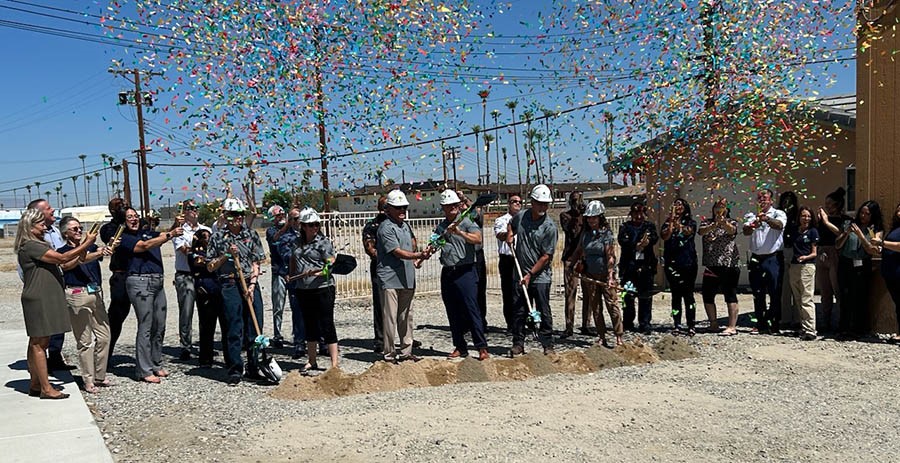Now
We’re debuting this new state web page with easy- to- use trackers for county and state progress. This lets you see what’s going on in your community and also links to more detailed program dashboards.
A key to our behavioral health transformation is adding accountability tools. This lets us see real results and better outcomes. And this means accountability from everyone, including:
We’re debuting this new state web page with easy- to- use trackers for county and state progress. This lets you see what’s going on in your community and also links to more detailed program dashboards.
In 2026-2027, all new mental health plans and reports from counties and state:
Progress is happening all around California. We’re transforming our behavioral health system to better support all Californians, especially those experiencing serious mental illness. Here, you can see the progress happening in your communities.
94%
of Californians insured for behavioral health
31209
treatment sites and housing units under construction or opened
Californians with the most serious mental illnesses and substance disorders need treatment, not tents or jails. Governor Newsom has made it a top priority to care for them. Proposition 1 and other state actions are making services, care models, treatment sites, and the workforce better.
What is full service treatment? It’s a model of care for people with serious mental illness that addresses all patient needs, including housing. These programs feature:
If you are seeking treatment in a full service partnership, contact either:
Californians receiving full service treatment
(monthly average)

Monthly average of Californians
with serious mental illness
in
full service partnership treatment
** Data unverified (state verification of county data begins July 1,
2026,
per Prop 1)
Counties are using new state tools to support the seriously ill and vulnerable. Additionally, California has provided billions to support communities in addressing homelessness.

Status:
Now
Before Jan 1, 2026 deadline
TBD/At End (Jan 2026)
The Newsom Administration has put together an easy guide to keep your local officials accountable. This includes the best questions to ask your county — and who to contact — to ensure progress continues to be made on Proposition 1 and other important behavioral health transformation programs.
Across the state, new community treatment centers and permanent supportive housing units have rapidly expanded since 2020 to meet long-standing needs.

Status:
Newly funded behavioral health treatment sites

Capacity means how many outpatients a behavioral health facility can treat. It’s measured by hours of service available or number of clients who can come through the door.

Status:
Under construction (Pre-Prop 1)
To be funded by Prop 1
The new Mentis youth wellness campus broke ground in July 2024. It will serve kids and teens who need mental health and substance use disorder treatment. California awarded Mentis more than $4.7 million to close gaps in behavioral health treatment. The campus will serve an estimated 1,950 people per year. Prop 1 will fund more treatment facilities like it in 2025 and 2026.
Explore more capacity data

Status:
Opened
Under construction (Pre-Prop 1)
To be funded by Prop 1

Beds means openings for inpatient treatment. Patients could be struggling with their mental health or substance use.

Status:
Opened
Under construction (Pre-Prop 1)
To be funded by Prop 1
The ABC Recovery Center expansion project broke ground in July 2024. It will include two new adult substance use disorder (SUD) residential units. This will expand treatment capacity to 120 beds. Outpatient treatment for SUD will also increase to serve 400 people per year. California is set to award $2.2 billion in competitive grants for facilities like this.
Explore more beds data

Status:
Opened
Under construction (Pre-Prop 1)
To be funded by Prop 1

Units mean openings in permanent supportive housing for people facing homelessness.

Status:
Opened
Under construction (Pre-Prop 1)
To be funded by Prop 1
In May 2024, California opened three new Homekey conversion projects in Stanton. They are Clara Vista, Illuma, and Aurora Vista. Together, they will offer 153 permanent supportive homes for people facing homelessness. Onsite services support those who have mental health or substance use challenges. Up to $2 billion in Proposition 1 funds will build more permanent housing like these new units
Explore more housing data

Status:
Opened
Under construction (Pre-Prop 1)
To be funded by Prop 1

This means the number of units set aside for California’s veterans. Prop 1 sets aside 50% of all funding for permanent supportive housing for veterans.

Status:
Opened
Under construction (Pre-Prop 1)
To be funded by Prop 1
Puett Place is new permanent supportive housing for veterans facing homelessness. It broke ground in July 2024. Puett Place is part of the Novato Workforce and Veterans Housing development. It will eventually include affordable workforce housing for people experiencing homelessness. More housing like this is coming in 2025 thanks to Prop 1 funding set aside for veterans at risk of or facing homelessness.
Explore more vets data

Status:
Opened
Under construction (Pre-Prop 1)
To be funded by Prop 1
Bond applications for treatment sites open
Bond applications for supportive housing open
Bond money awarded to:
All counties implement new 3-year comprehensive behavioral health services plans
California awarded $3.3 billion in grant funds from Proposition 1 to help build treatment sites. Learn more.
Counties have the tools and resources they need to:
Here’s how to do it:


